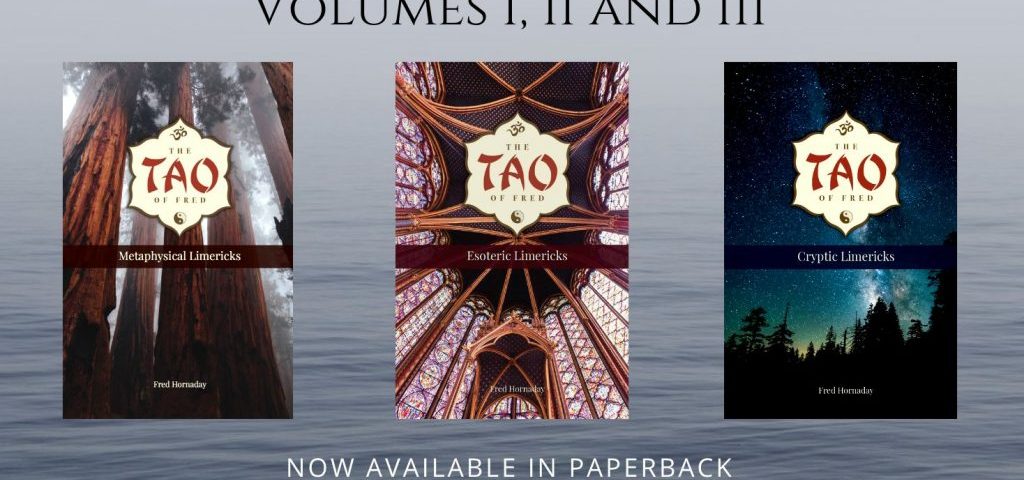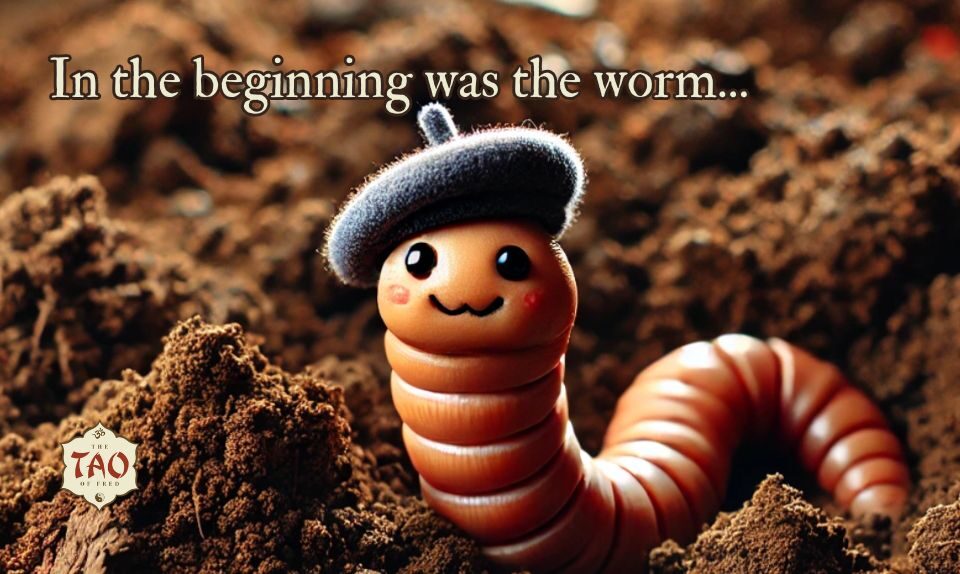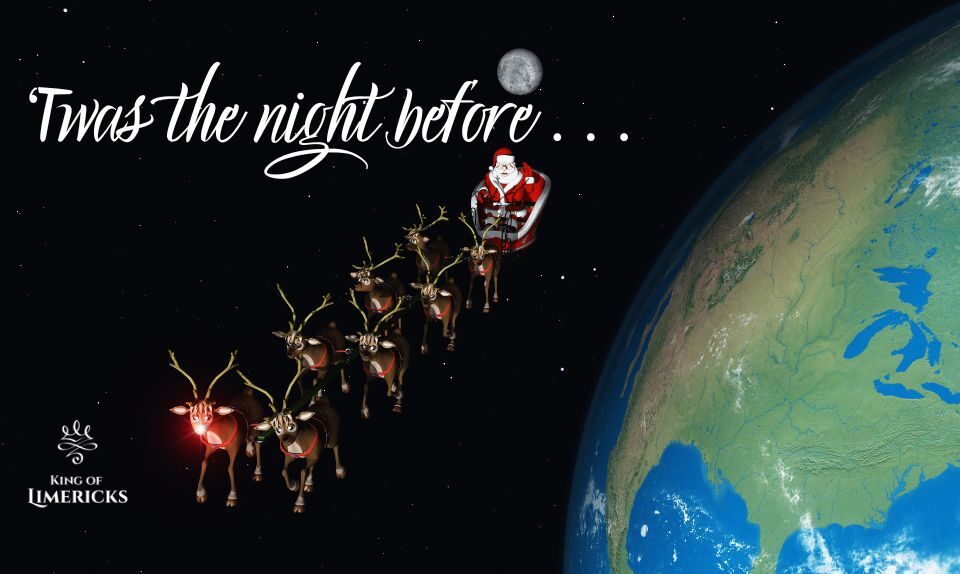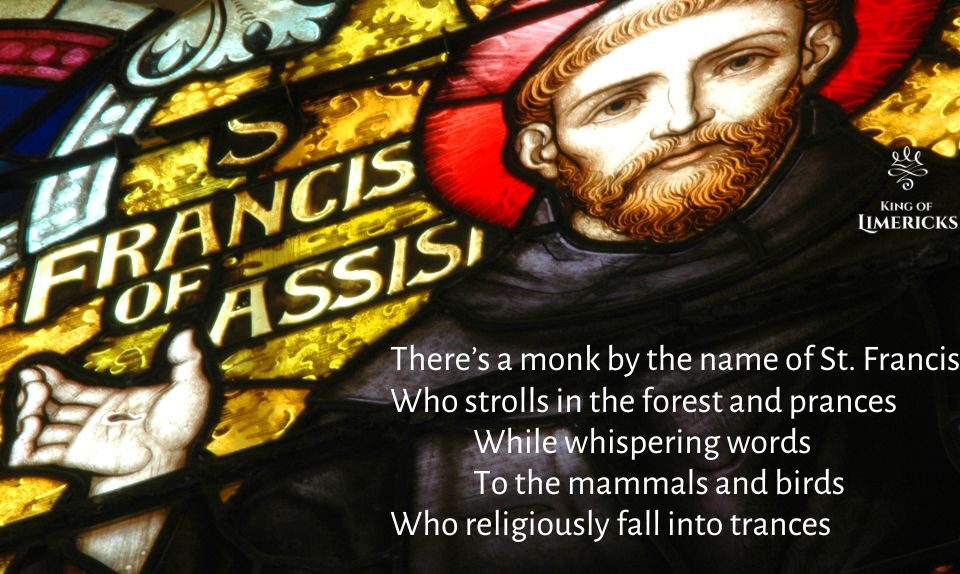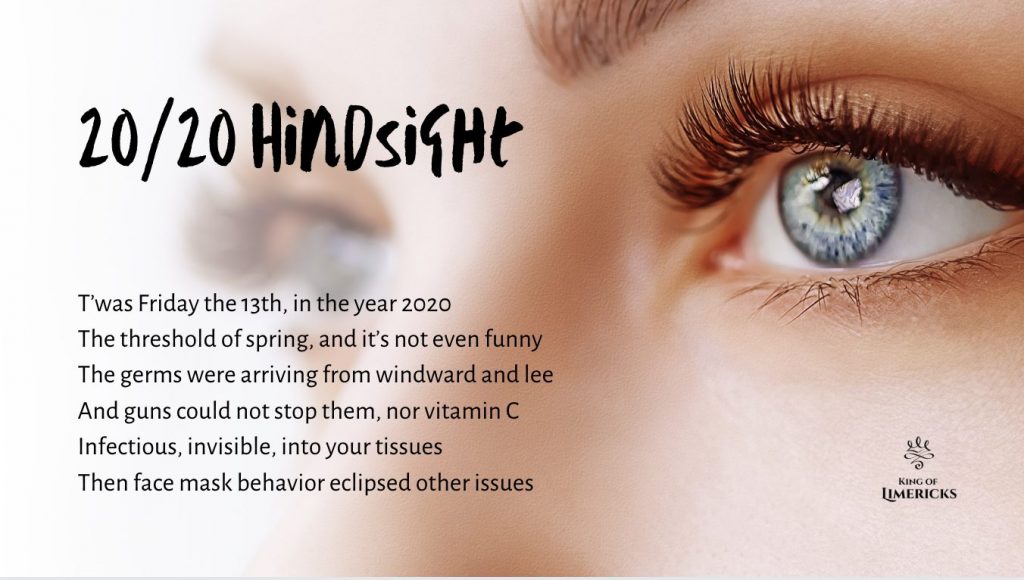
The Year 2020: A poetic retrospective
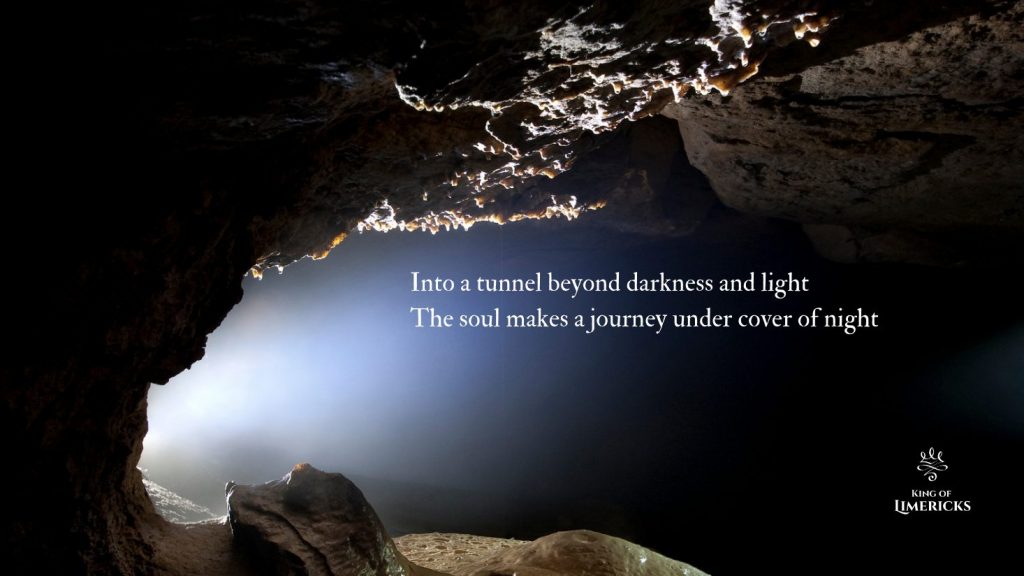
Lyrical poetry about the Great Unknown
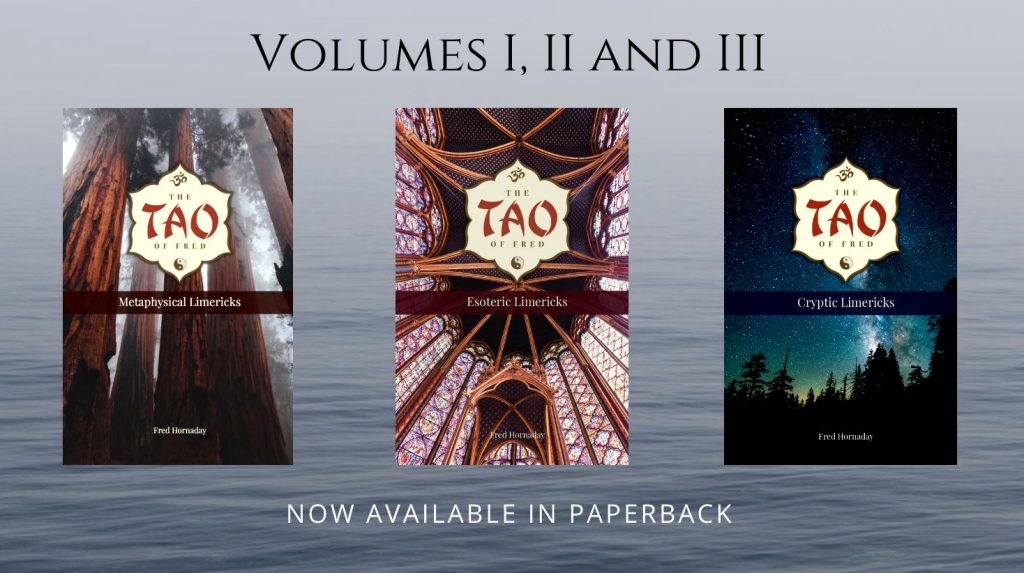
One of the central axioms of Taoism says that life is a journey, not a destination. But today I’m thrilled to announce a momentous milestone in my ongoing journey.
It’s been a long time coming, but just in time for the holiday season, my limericks are finally available in paperback from Amazon.com.
I started writing metaphysical limericks about 13 years ago, as my father was dying of Parkinson’s syndrome. My dad always had a quirky sense of humor. He was an Aquarius, and a big fan of both Ogden Nash and William Faulkner. He may not have been the most spiritual card in the deck, but his priorities were never out of place. And I know he enjoyed at least a couple of my poems before he headed up to the big bookstore in the sky.
Limericks as a journey
Writing limericks has proven to be a surprisingly effective means of soothing my soul in difficult times. I regularly employ the practice for mindfulness purposes, as a way of clearing my head and focusing my attention.
Mind you, these aren’t the sorts of limericks you see scrawled on the partitions in the men’s room. I don’t actually endorse the use of graffiti on public property. Although I’m not opposed to a little off-color commentary from time to time.
Anyone who’s perused my blog or followed my social media posts will know by now that I have an obsession with limericks of the more esoteric variety. They deal more with problems of consciousness and the question of what it means to live a good life, and less with the man from Nantucket who could fill half a bucket.
From nursery rhymes to paperback
When you look at the history and evolution of limericks, it’s a pretty wild ride. At the same time, it follows a pretty standard course of back and forth, give and take. So it really shouldn’t come us much of a surprise, no more so than any other dialectical development.
When Edward Lear published his Book of Nonsense in 1846, he gave the world its first real taste of limericks. Although at this time, nobody was referring to the five-line verses as limericks. And though they were nonsensical, they were anything but lewd and licentious.
It wasn’t until the last decade or so of the 19th century, when a handful of dirty-minded Irishmen coopted the form, renamed it, and began exchanging prurient poesy, that we got the limericks we know of today. It was a dark and debauched detour down a libidinous literary alley. But it bore a bounty of fruit, and who can say it wasn’t worthwhile?
Eventually, however, all things must evolve. If we’ve learned nothing else in the year 2020, we should have learned the importance of adaptation. The time has come to recognize what’s useful, and to leave childish things behind. (1 Corinthians: 13)
For the last few centuries, science has been supplanting the ways of religion and mythos. The irrational arts have been put away, like childish things. But now it’s beginning to look like we threw away the child with the things, or the baby with the bathwater, if you prefer.
There was wisdom in those myths and lies, and no better way to recover it than just bit by bit, one limerick at a time. That’s the project I’ve undertaken for the last dozen years, and it’s the work that makes up my series of paperback limerick anthologies.
Limericks and more
If you’ve been enjoying my limericks, please consider sharing the joy this holiday season. And you may not know it, but I write a lot more than just limericks. Check out some of these longer poetic narratives and prose articles.
- The Legend of Rusty the Wagon: A true story from quarantine
- The Legend of Bell: A heroic awakening
- 13 Educational Limericks
- The History of Limericks

